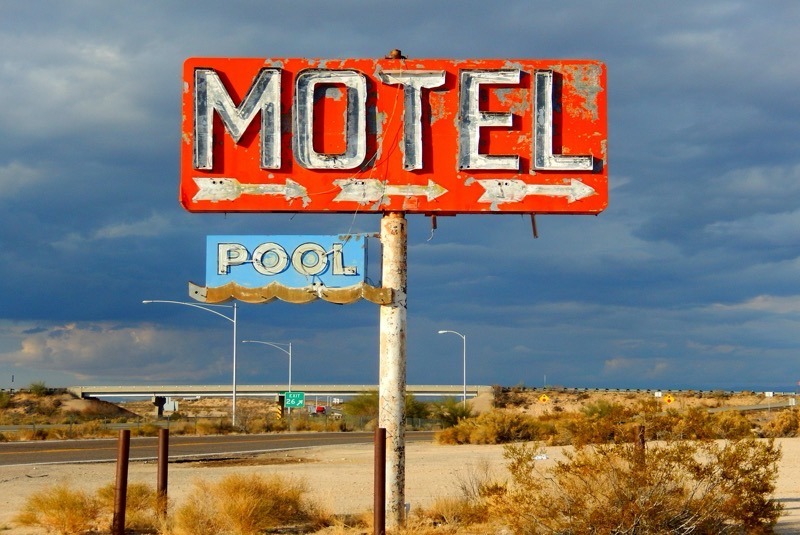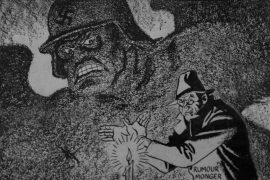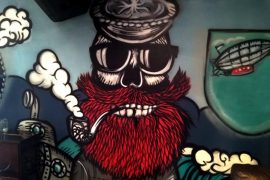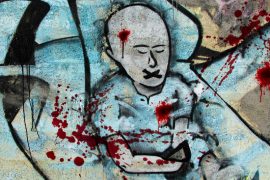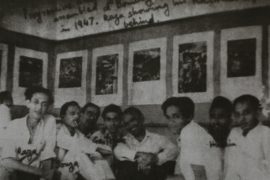“I saw my dad working in the middle of the night,” recalled forty-seven-year-old Manoj Pandoria, a second-generation Indian raised in a motel run by his parents. Every morning, his mother straightened up all the rooms without fail, no matter how tired. “Hard work is not an option.”
Stories of hard work, sleepless nights, and lost childhood are not uncommon among the American Indians who came to own fifty per cent of the hotelier business in the United States. The majority of these Indian hotelier businessmen are from the Patel caste from the state of Gujarat, which gave birth to the trope: the ‘Patel Motel Cartel’.
Gujaratis own over forty-two per cent of the hotel business in the United States, and Patels own eighty to ninety per cent of the motels in American small towns. So, if you stop by a motel on the highway to check in for the night, it is likely that you’ll find a friendly Gujarati face behind the counter.
Kanji Manchhu Desai crossed the Mexican border in California in 1942 and came to the United States. He stayed at a low-cost inn in Sacramento, California, owned by a woman of Japanese descent. When a Japanese aerial attack struck Pearl Harbor on 7 December 1942, the Japanese-American owner of the inn was forced into internment.
Desai, an undocumented immigrant, and two other Gujarati farmworkers took her motel on rent and turned it into the first motel owned by the Patels. In 1947, Desai moved to the Goldfield Hotel in San Francisco. According to a California-based historian, Mahendra Doshi, he warmly welcomed all immigrants from Gujarat and encouraged them to enter the hospitality business.
Doshi says Desai played an essential role in setting up the Gujarati hotelier empire. He encouraged other Gujaratis by supporting them with ‘handshake loans,’ in which he loaned money without demanding collateral or scheduled payment. They could pay whenever they could. ‘If you are a Patel, lease a hotel,’ Desai would say.
While Desai did open the gates to an empire, it was not until the 1980s that Gujaratis came to dominate the hospitality business. However, it was not a smooth ride. In the 1940s, many local hoteliers were keen to exit their motel business as they could not manage the cost and maintenance. The younger generations also seemed uninterested in it.
Following Idi Amin’s ejection of Asians from Uganda in 1972, Patels of Gujarati origin came to the United States and acquired the motels that were made available to them. While they could not manage the cost of maintaining hotels, smaller motels were often funded through finances loaned from their distant family members.
One important strategy that kept the cost down for motel owners was involving the family in the business. Once the family owned a motel, they lived there, saving the rent cost, and all the members divided the tasks needed to run it, saving the cost of employing others.
Pandoria grew up at the Holiday Motel in Rocky Mount, North Carolina. His family took over the twenty-three-room property in the middle of pine forests and cornfields in 1981. He clearly remembers his childhood spent engaged in chores. ‘My weekends were spent cleaning rooms with my parents,’ he reminisced. If the client needed something from the motel admin, family members were required to stop whatever they were doing and serve the client.
Growing up in Motels inculcated the spirit of strong work ethic amongst the second and third-generation Gujaratis in the United States. Gujaratis are stereotypically known to exceed in business and have entrepreneurial acumen; however, in the motel business, it is seen that success is achieved through sheer hard work. The people who thrived are also the people who did not shy away from doing small work.
Chandrakant Patel, who founded Alamo Plaza Hotel Courts in 1976, worked as an executive for a domestic airline. He came to the U.S. for higher education and continued with the airline job while handling the motel’s front desk during lunch hours.
Chandrakant told IndiaAbroad that managing a motel with a job meant sacrificing family life, but the rewards, in terms of money, kept him motivated. Like many start-up motel businesses, Patel and his family had to take care of odd jobs like cleaning, laundry, fixing electricals, etc. The ‘ownership’ of the business keeps them motivated as they are working for a better future for themselves and their family, but not for an employer.
Chandrakant Patel expanded his business from one independent motel in 1976 to thirteen small hotels in 1987. In 2019, he owned eight major hotels, including six in New York City, like Hilton, Best Western, and Marriot.
Apart from filling in the workforce and managing various chores, an external barrier of racial discrimination acted as an impediment Gujarati entrepreneurs had to overcome. While the incidents of Bias were minor, they were always there.
Indians often faced isolation from the local community, unable to find local help in maintaining their business. Motel customers frowned when they noticed that the face behind the counter was brown. ‘They had come in seeking accommodation but were put off by our accents and skin color,’ said one of the hoteliers.
A lot of isolation among the Gujarati motel owners was also self-imposed. Until the recent generation, Patels shied away from interactions with local people due to their limited proficiency in English. Further, they saw no use in interacting with people who were not motel patrons, and those were usually not the local residents.
Living on the motel premises further limited their interactions with outside people. Pandoria admitted that living on a property isolated from the rest of the town resulted in a lonely childhood. His only playmates were kids living in a trailer on the other side of the highway and children who would come use the pool in summer.
Situations are changing over time, though. Pawan Dhingra, professor of American Studies and contributing faculty in the Department of Sociology and Anthropology at Amherst College, authored “Life Behind the Lobby: Indian American Motel Owners and The American Dream.”
According to Dhingra, more opportunities for integrating with the local community are available these days as the owners recognise the line between home and work, living outside the motel premises, and mixing with people from different communities due to school and college-going children. “They have got much better exposure with the result that the community now makes connections outside their own ethnic community,” said Dhingra.
Dhingra does not dismiss that the community faces racial challenges in the business as he also stresses that many times, people in the local community do not want to be associated with Gujaratis due to xenophobia.
According to a BBC report, the times after 9/11 were particularly hard for Indians. Many motel owners began to display signs such as ‘American owned’ in their windows. In an interview with the New York Times, Mike Patel, founder and former chairman of the Asian American Hotel Owners Association (AAHOA), admitted that while he was aware of such attitudes, the community had ‘learned to live with that sort of prejudice.’
”It doesn’t get us down; if we survived Idi Amin, a couple of redneck motel owners aren’t going to bother us much. In any case, our motels are American-owned, too. We’re Patels and Americans,” he insisted.
“Entrepreneurship is in their blood,” holding true to their affinity for entrepreneurship, Gujarati Patels have found immense success in the Hotelier industry of the United States and manifested the American Dream, but not without major challenges.
The Asian American Hotel Owners Association reported an increase in membership across the United States. The trade organisation of Indian American hoteliers claims that one in every two hotels in the US is owned by a family of Indian descent, accounting for over twenty-three thousand properties. These hotels employ over seven hundred thousand people and account for over ten billion dollars in annual payroll.
-30-
Copyright©Madras Courier, All Rights Reserved. You may share using our article tools. Please don't cut articles from madrascourier.com and redistribute by email, post to the web, mobile phone or social media.Please send in your feed back and comments to [email protected]

